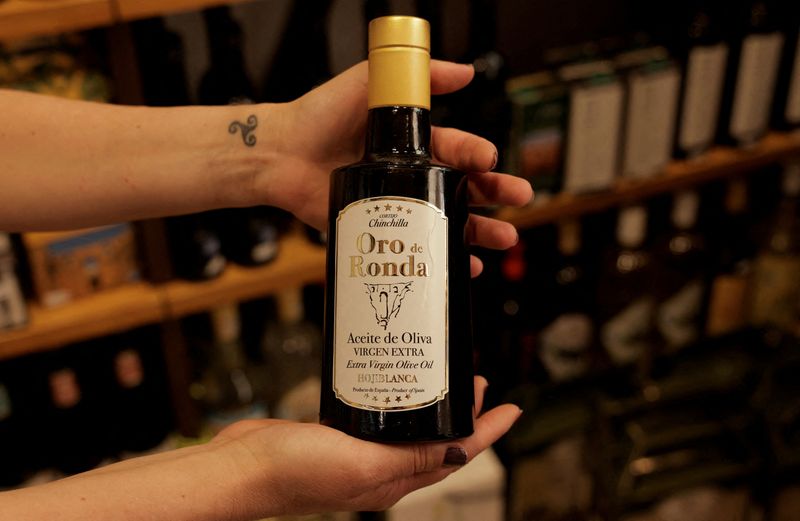
MADRID (Reuters) – Olive oil exporters in Spain, the world’s biggest producer, have warned there are no viable alternative routes to the lucrative U.S market amid a strike at U.S. East and Gulf Coast ports.
Spanish olive oil producers’ and exporters’ association Asoliva said the strike that started on Oct. 1 would hit exports, without quantifying the impact.
WHY IT IS IMPORTANT
Spain became the largest exporter of olive oil to the United States last year, overtaking Italy as shipments reached 180,000 metric tons, or nearly a third of the 480,000 tons consumed there, according to Asoliva.
Spanish olive oil exports to the U.S. also doubled in value between January and July from year ago to 693 million euros ($765 million), Spanish official data show, accounting for 6% of Spain’s total exports to that country. Meanwhile, consumption of bottled oil in Spain has fallen due to rising prices.
KEY QUOTES
“If the strike continues, it’s going to be a problem … we don’t think it’s viable to go through the Panama Canal or Argentina, or by air,” Asoliva director Rafael Pico said.
Spanish cooperative Dcoop told Reuters that it had looked at potentially shipping to less-affected ports, but that didn’t seem to be an option.
“We hope it (the strike) will be called off soon,” it said, adding it had increased shipments to the United States in recent weeks to build up stocks ahead of the strike.
CONTEXT
U.S. consumers have been buying more Spanish olive oil, even though at an average of 8.81 euros per kilogramme it is more expensive than its Italian counterpart.

Some U.S. analysts have warned that perishable products such as fruit, seafood and coffee will be first affected after a week of strike action. Non-perishable imports should be less affected, but congestion at West Coast ports could also worsen.
($1 = 0.9058 euros)
This post is originally published on INVESTING.



